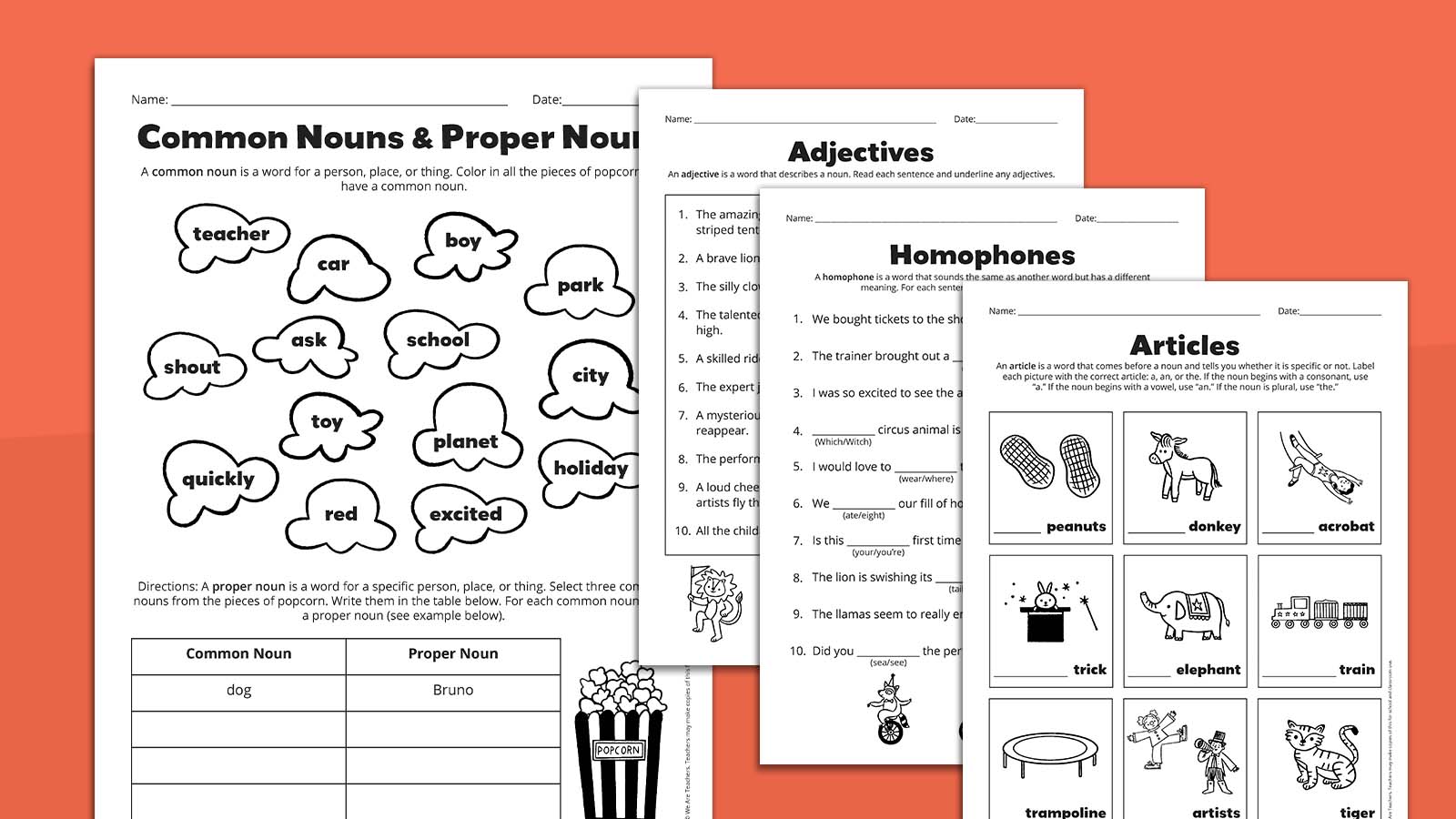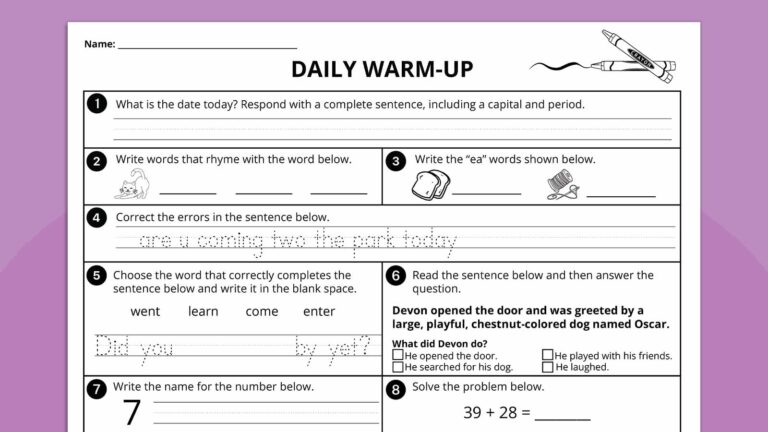Antonyms, synonyms, homophones, contractions … if you’re a 2nd or 3rd grader, it’s enough to make your head spin! Using correct conventions is essential to written communication. But that doesn’t mean your instruction has to be a snooze. Grab our bundle of fun, circus-themed grammar worksheets and get to work! (Feeling rusty yourself? Each worksheet includes a definition of important grammatical terms.) Here’s what’s covered:
Common and Proper Nouns
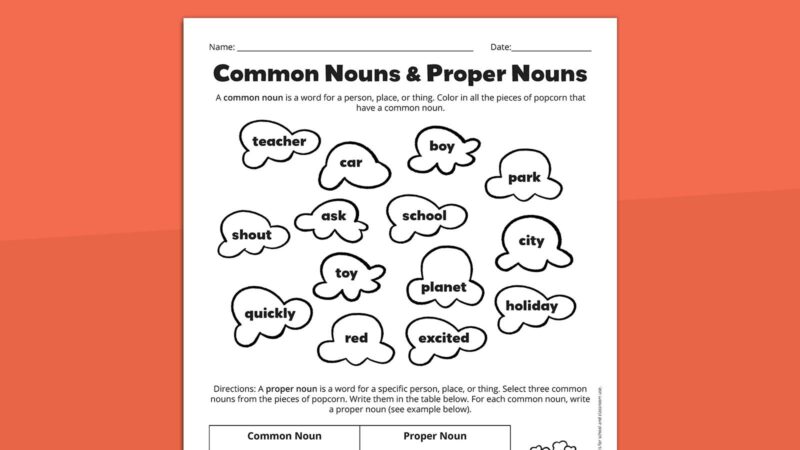
We’ve placed 14 words inside pieces of popcorn. Your students will need to identify which ones are nouns. At the bottom, they’ll take some of those common nouns and turn them into proper ones (e.g., common noun “girl” becomes proper noun “Hazel”).
Action Verbs
On this page, students will see six circus characters and are asked to write as many verbs as they can to show what each person or animal might be doing (for example: a clown could juggle).
Adjectives
For each of the 10 sentences, students will underline the adjectives. Watch out! Some have more than one.
Prepositions
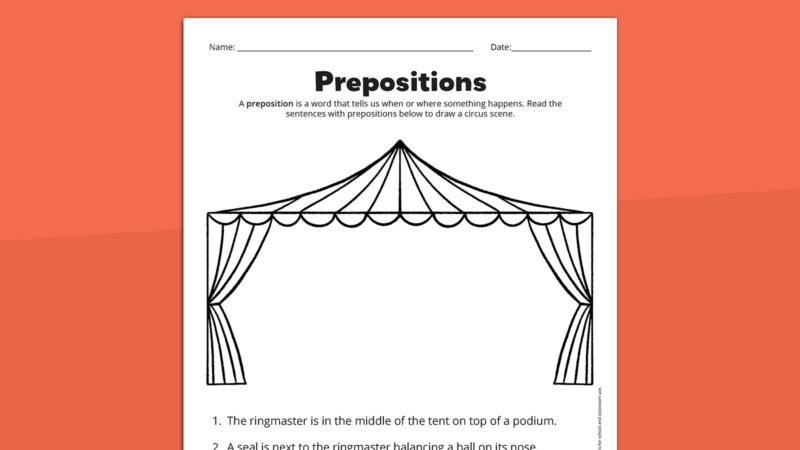
We’ve provided students with a circus tent border and lots of room to draw. They’ll use clues with prepositional phrases (such as “A seal is next to the ringmaster balancing a ball on its nose”) to illustrate a fun circus scene.
Pronouns
In this cut-and-paste activity, students match the pronoun to the noun (e.g., “they” for “the horse and rider”).
Plural Nouns
More cut-and-paste fun! Students will sort the words into “singular” and “plural” categories. Remember: Not all plurals end in “s”!
Synonyms
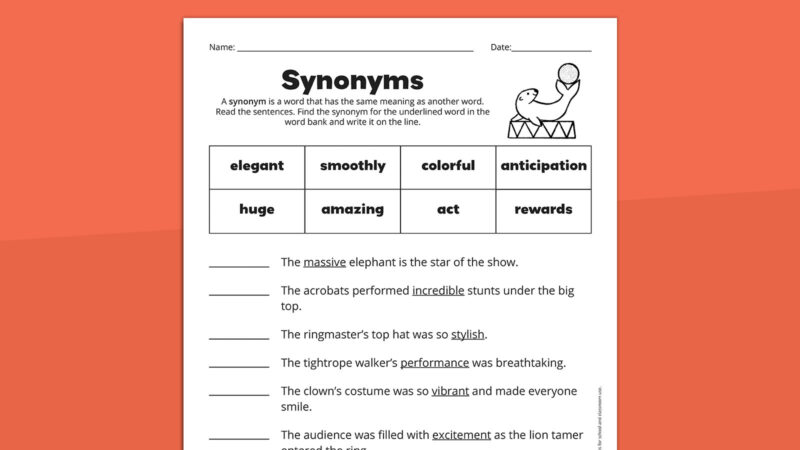
We’ve written eight sentences about the circus. Students will consider the underlined word in each sentence and find the word in the word bank with close to the same meaning.
Antonyms
Students will fill in a table where they must write a word that means the opposite of the word in the first column (for example, the opposite of “rich” could be “poor”).
Homophones
Students will read a series of sentences and identify the correct spelling of the homophone that fits each sentence.
Articles
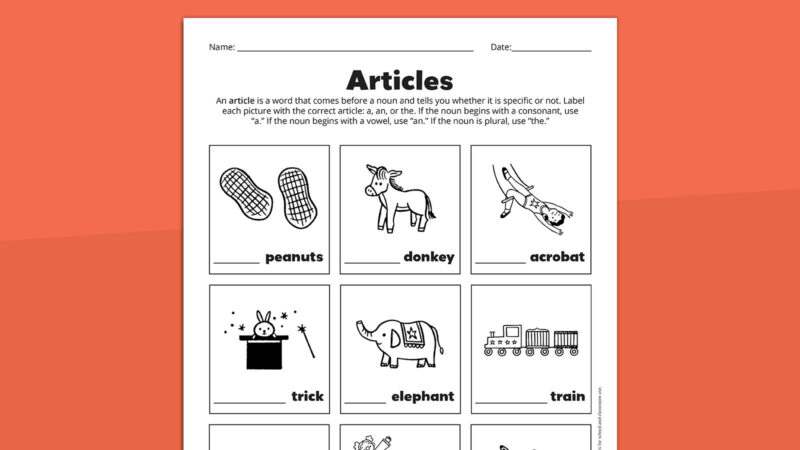
For each of the nine words, students will have to figure out whether to use “a,” “an,” or “the.” We’ve also included pictures to color just for fun.
Contractions
Balloon contractions! Students will combine the words in the balloons to create a contraction.
Possessive Nouns
We’ll give students several phrases, which they then have to turn into possessive nouns. So, “the podium of the elephant” becomes “the elephant’s podium.” We’ve included some tricky words here, including regular and irregular plurals and at least one singular noun that ends in “s.”
Compound Words
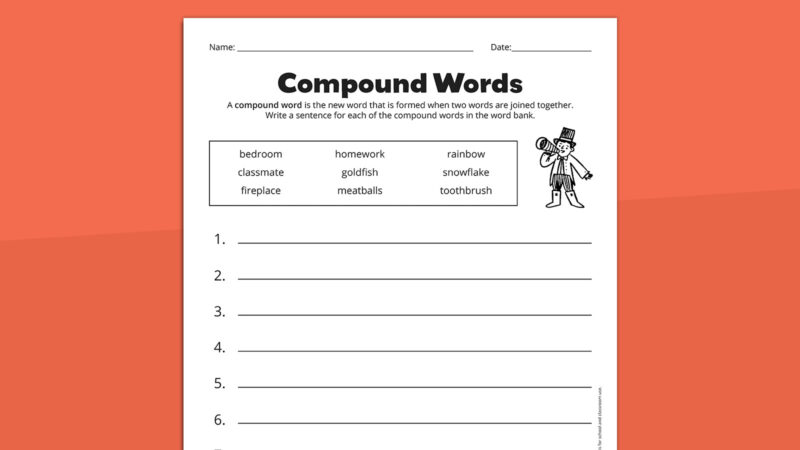
Students must write nine sentences given a list of compound words.
Ending Punctuation
After reading each sentence, students must determine if a period, question mark, or exclamation point makes the most sense as ending punctuation.
Conjunctions
We give students pairs of sentences that they can combine with “and,” “but,” or “or.”
